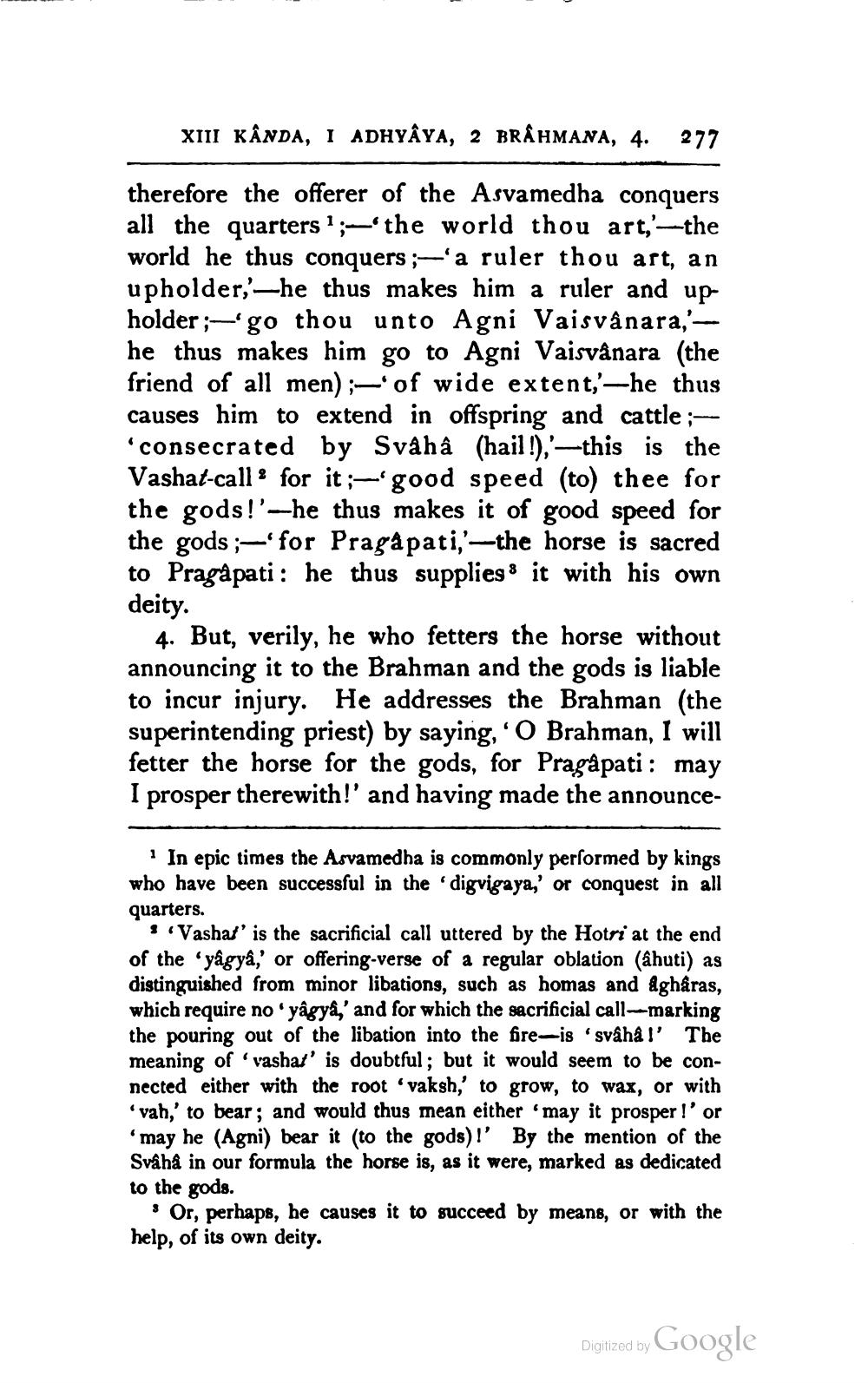________________
XIII KÂNDA, I ADHYAYA, 2 BRAHMANA, 4. 277
therefore the offerer of the Asvamedha conquers all the quarters '-'the world thou art,'-the world he thus conquers;-'a ruler thou art, an upholder,'-he thus makes him a ruler and upholder; go thou unto Agni Vaisvânara,'he thus makes him go to Agni Vaisvânara (the friend of all men); of wide extent,'-he thus causes him to extend in offspring and cattle ;'consecrated by Svâhâ (hail!),'-this is the Vashat-call for it;-'good speed (to) thee for the gods!'-he thus makes it of good speed for the gods;-'for Pragâpati,'-the horse is sacred to Pragâpati: he thus supplies it with his own deity.
2
4. But, verily, he who fetters the horse without announcing it to the Brahman and the gods is liable to incur injury. He addresses the Brahman (the superintending priest) by saying, 'O Brahman, I will fetter the horse for the gods, for Pragâpati: may I prosper therewith!' and having made the announce
In epic times the Arvamedha is commonly performed by kings who have been successful in the 'digvigaya,' or conquest in all quarters.
''Vasha'' is the sacrificial call uttered by the Hotri at the end of the 'yâgyâ,' or offering-verse of a regular oblation (âhuti) as distinguished from minor libations, such as homas and aghâras, which require no 'yâgyâ,' and for which the sacrificial call-marking the pouring out of the libation into the fire-is 'svâhâ!' The meaning of 'vasha' is doubtful; but it would seem to be connected either with the root 'vaksh,' to grow, to wax, or with 'vah,' to bear; and would thus mean either may it prosper!' or 'may he (Agni) bear it (to the gods)!' By the mention of the Svâhâ in our formula the horse is, as it were, marked as dedicated to the gods.
Or, perhaps, he causes it to succeed by means, or with the help, of its own deity.
Digitized by
Google




